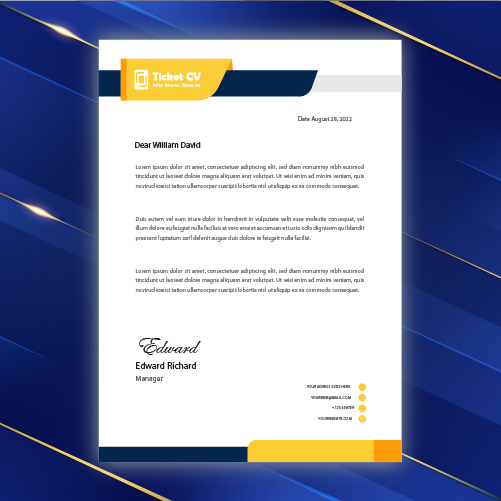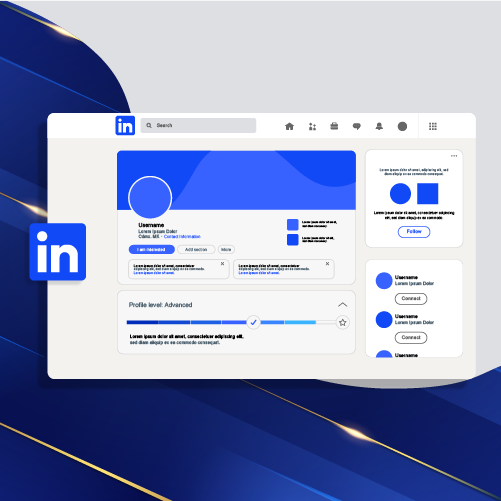- Understanding the Role of Background Checks Post-Interview
- Verifying Candidate Information
- Assessing Suitability for Roles
- Key Components of Employment Background Checks
- Types
- Importance
- Significance of Receiving a Background Check Request
- Serious Consideration
- Moving Forward in Hiring Process
- Preparing Yourself for an Employment Background Check
- Accuracy and Updates
- References and Character Validation
- Social Media Presence Review
- Timeline and Duration of Background Screening Processes
- Varying Timelines
- International Background Checks
- Employer Responsibilities and Ethical Considerations
- Obtaining Candidate Consent
- Ensuring Legal Compliance
- Ethical Treatment of Candidates
- Addressing Potential Red Flags in Your Background Check
- Explaining Discrepancies and Issues
- Emphasizing Positive Signs
- The Impact of Fair Chance Hiring Policies on Background Checks
- Understanding Fair Chance
- Consideration Beyond Convictions
- Individualized Assessment Approach
- Interpreting Background Check Results and Next Steps
- Review Carefully
- Discuss Potential Concerns
- Closing Thoughts
- Frequently Asked Questions
- What is the significance of receiving a background check request?
- How can one prepare for an employment background check?
- What are some key components of employment background checks?
- How long does a typical background screening process take?
- How should potential red flags in one’s background check be addressed?
After a job interview, the anticipation of a background check can be nerve-wracking. However, it’s often indicative of positive progress in the hiring process. Employers typically conduct background checks on candidates they are seriously considering for a position. This step demonstrates that you have made a favorable impression during the interview and are being seriously considered for the role.
A background check after an interview is usually conducted to verify your credentials and ensure that there are no red flags in your history that could affect your suitability for the job. It signifies that you have passed initial screening stages and may be one step closer to securing the position. Understanding what this stage entails can help alleviate any anxiety and provide reassurance as you move forward in the hiring process.
Understanding the Role of Background Checks Post-Interview
Verifying Candidate Information
Employers conduct background checks after interviews to confirm the accuracy of the information provided by candidates during the interview process. For instance, they verify educational qualifications, employment history, and professional certifications. This step is crucial as it ensures that the candidate’s claims align with reality. By doing so, employers can make informed decisions about whether a candidate is suitable for a particular role.
Background checks also help in confirming other essential details such as criminal records and credit history. These aspects are significant for certain roles where trustworthiness and financial responsibility are paramount. For example, positions involving handling sensitive information or managing company finances require candidates with clean backgrounds.
In addition to this verification process, background checks provide employers with a comprehensive understanding of a candidate’s past behavior and actions. They offer insight into an individual’s character beyond what is presented during an interview.
Assessing Suitability for Roles
Employers utilize background checks to assess a candidate’s suitability for specific roles within their organizations. By scrutinizing a candidate’s past experiences and behaviors revealed through these checks, employers gain valuable insights into how well individuals might fit into their work environments.
For instance, if someone has consistently demonstrated ethical behavior in previous roles or has relevant experience that aligns with the requirements of the position being offered, it serves as evidence supporting their candidacy.
On the contrary, if discrepancies or concerning findings arise from these background checks – such as unverified employment history or undisclosed legal issues – it can raise red flags regarding the individual’s honesty and integrity. Employers use this information to make informed decisions about potential hires based on concrete data rather than just relying on impressions formed during interviews.
Key Components of Employment Background Checks
Types
Employment background checks encompass various types of screenings, each serving a specific purpose. These screenings typically include criminal records, employment verification, and education verification. For instance, employers may delve into an individual’s criminal history to ensure they have not engaged in any unlawful activities that could jeopardize the workplace or pose a threat to colleagues. Moreover, credit history and driving records are common components as well. Employers often scrutinize credit reports to assess an applicant’s financial responsibility and reliability. Similarly, examining driving records is crucial for roles involving transportation or operating company vehicles.
Background checks also extend to verifying an individual’s educational qualifications and professional certifications. This process ensures that candidates possess the necessary credentials claimed on their resumes. By confirming these details through education verification and checking for professional licenses and certifications, employers can ascertain the authenticity of an applicant’s qualifications.
Furthermore, some industries require additional types of background checks tailored to their specific needs. For example, positions in finance or healthcare might necessitate deeper scrutiny such as credit history checks due to the sensitivity of financial information handled by employees in these sectors.
Importance
Understanding the significance of conducting thorough employment background checks post-interview is paramount for employers seeking reliable personnel while mitigating potential risks within their organizations. Criminal record screenings play a vital role in safeguarding workplaces from individuals with prior convictions that may compromise safety or security within the organization.
Moreover, verifying employment histories aids in ensuring that applicants have provided accurate work experience details on their resumes while assessing their suitability for particular roles based on past job responsibilities and achievements.
Similarly, education verifications help companies confirm academic credentials presented by candidates during the hiring process – a critical step in validating an applicant’s eligibility for certain positions requiring specific degrees or educational qualifications.
In addition to this validation process being essential for upholding organizational integrity.
Significance of Receiving a Background Check Request
Serious Consideration
Receiving a background check request after an interview is a positive sign that indicates you are being seriously considered for the position. It shows that the employer has moved beyond the initial stages of screening and is now focusing on candidates who are potential fits for the role. The fact that they are investing resources into conducting a background check implies that you have made it to a shortlist of qualified applicants.
This step also demonstrates that your qualifications have met the initial criteria set by the employer. They have likely reviewed your resume, conducted interviews, and assessed your skills and experience to ensure they align with what they are looking for in an ideal candidate. As such, this request serves as validation of your professional background and suitability for the role.
Moving Forward in Hiring Process
The request for a background check signifies forward movement in the hiring process. It’s an indication that you have successfully navigated through earlier stages, such as phone screenings or initial interviews, and have now progressed to more advanced evaluation processes. This suggests that you may be among one of the final candidates being considered for employment.
Moreover, employers typically invest time and money into conducting background checks on individuals whom they intend to hire. Therefore, this stage represents their commitment towards potentially bringing you onboard as part of their team. It reflects their dedication to ensuring due diligence before making any final decisions about filling the position.
Preparing Yourself for an Employment Background Check
Accuracy and Updates
Ensuring accurate and up-to-date information on your resume is crucial when preparing for an employment background check. Any discrepancies or outdated details could raise red flags during the screening process. Make sure that all employment history, educational qualifications, and personal details are correctly presented on your resume.
It’s essential to review your work history thoroughly before the background check. Ensure that past employers’ names, dates of employment, job titles, and responsibilities align with what you’ve listed on your resume. This consistency demonstrates honesty and attention to detail, which are favorable qualities in a job candidate.
References and Character Validation
Be prepared to provide references who can vouch for your character, work ethic, and professional conduct. Select individuals who have worked closely with you in previous roles such as supervisors or colleagues who can speak positively about your performance. These references play a vital role in validating your qualifications and suitability for the position.
When selecting references for the employment background, consider individuals who can provide specific examples of how you contributed to projects or demonstrated leadership skills. This kind of detailed insight into your work capabilities can significantly bolster confidence in hiring managers regarding their decision to offer you the position.
Social Media Presence Review
Reviewing your social media presence is another critical step in preparing for an employment background check. Hiring managers often conduct online searches to gather additional insights into candidates beyond their resumes and interviews. Ensure that any content visible publicly portrays a professional image consistent with the qualifications highlighted during the recruitment process.
Check for any potentially concerning content such as controversial opinions, inappropriate photos or language, or unprofessional behavior that could reflect poorly on you as a job candidate. Remember that maintaining a positive online reputation contributes positively towards reinforcing confidence in hiring decisions made by potential employers.
Timeline and Duration of Background Screening Processes
Varying Timelines
Background checks after interviews are a good sign that an employer is considering hiring the candidate. The duration of these screenings can differ significantly based on the depth and complexity of the check required. Some background checks, especially standard ones, can be completed within just a few days. These typically involve verifying employment history, checking for criminal records, and confirming educational credentials.
However, more comprehensive background investigations may take several weeks to complete. For instance, if an employer seeks to conduct extensive international background checks or scrutinize financial records or credit history, the process might extend over several weeks due to the additional layers of verification involved.
International Background Checks
Employers should anticipate longer processing times compared to domestic screenings. This is because verifying information across different countries involves navigating varying legal systems and obtaining records from multiple sources in different languages. As such, international screenings often require more time – sometimes even months – before they are finalized.
Employers need to consider these timelines when planning their hiring processes and informing candidates about potential start dates for new positions.
Employer Responsibilities and Ethical Considerations
Obtaining Candidate Consent
Employers have a crucial responsibility to obtain consent from candidates before conducting any background checks. This ethical practice ensures that candidates are aware of and agree to the process, maintaining transparency and fairness. Without candidate consent, employers risk breaching privacy laws and damaging their reputation.
When an employer seeks to conduct a background check after an interview, it can be seen as a positive sign if they request the candidate’s permission beforehand. This demonstrates respect for the candidate’s rights and indicates a commitment to ethical hiring practices.
Ensuring Legal Compliance
Employers bear the responsibility of ensuring compliance with relevant laws and regulations when conducting background checks on potential employees. These may include federal or state laws governing consumer reporting agencies, anti-discrimination regulations, or specific industry requirements.
By complying with legal mandates related to background screening processes, employers uphold their integrity and demonstrate respect for candidates’ rights. For instance, adhering to Fair Credit Reporting Act (FCRA) guidelines is essential when using consumer reports for employment purposes.
Maintaining legal compliance not only protects the employer from potential litigation but also fosters trust between the employer and prospective employees by showcasing a commitment to fair treatment.
Ethical Treatment of Candidates
Ethical considerations in post-interview background checks encompass treating all candidates fairly and consistently throughout the hiring process. Employers should apply uniform standards when evaluating candidates’ backgrounds rather than singling out individuals based on personal biases or arbitrary criteria.
For example, if an employer decides to review social media accounts as part of the background check process after interviews, it is imperative that this practice is applied uniformly across all applicants for a particular position. Consistency in approach reinforces fairness while mitigating concerns about subjective decision-making based on individual social media presence.
Addressing Potential Red Flags in Your Background Check
Explaining Discrepancies and Issues
When a background check reveals discrepancies or issues, it’s crucial to be ready to provide an explanation. For instance, if there are errors in your credit history, you should be prepared to clarify the situation. If there was a recent speeding ticket that appears on the report, it’s essential to have an honest response ready.
It’s important to remember that honesty is key when addressing any concerns that arise during the background check process. Employers appreciate transparency and open communication regarding any potential red flags in your background. By providing context for past legal or financial issues, you can demonstrate accountability and responsibility.
Highlighting steps taken to address and rectify any negative aspects of your background can also work in your favor. For example, if there were past financial difficulties but you have since taken proactive measures such as attending financial management courses or working with a credit counselor, this demonstrates growth and determination.
Emphasizing Positive Signs
While addressing potential red flags is important, it’s equally essential to highlight positive aspects of your background. If there are great things about your credit reports or other areas of concern, make sure to bring these up as well. This could include demonstrating consistent improvement in your credit history over time or showcasing achievements and positive contributions relevant to the position.
The Impact of Fair Chance Hiring Policies on Background Checks
Understanding Fair Chance
Fair chance hiring policies are designed to offer opportunities to individuals with criminal records. These policies aim to reduce discrimination against applicants with criminal backgrounds and give them a fair opportunity for employment. By limiting the consideration of certain types of convictions, these policies help prevent unfair exclusion from job opportunities solely based on past mistakes.
Fair chance hiring initiatives impact the way employers conduct background checks after interviewing candidates. Instead of immediately disqualifying individuals with criminal records, companies need to consider their qualifications and potential contributions to the workplace. This shift in approach allows for a more comprehensive evaluation during the hiring process.
Navigating Fair Chance Hiring Policies Employers must navigate fair chance hiring policies while still prioritizing workplace safety. It’s essential for organizations to strike a balance between providing second chances and ensuring a safe work environment for all employees. When conducting background checks after interviews, employers should focus on specific aspects:
Consideration Beyond Convictions
Employers need to look beyond an applicant’s criminal convictions when evaluating their suitability for a role. Rather than solely relying on past legal issues, they should assess factors such as relevant skills, experience, references, and personal growth since the time of conviction.
- Evaluate skills: Assessing an individual’s skill set can provide insight into their ability to excel in the desired role.
- Review experience: Prior work experience and achievements can demonstrate an applicant’s capacity for success despite previous challenges.
- Seek references: Personal or professional references can shed light on an individual’s character development and reliability.
Individualized Assessment Approach
Implementing an individualized assessment approach allows employers to consider each candidate’s unique circumstances before making any decisions based on their criminal history.
- Case-by-case review: Evaluating each candidate individually helps avoid blanket rejections based solely on past legal involvement.
- Focus on rehabilitation: Recognizing efforts towards rehabilitation demonstrates support for personal growth and positive change.
Interpreting Background Check Results and Next Steps
Review Carefully
After the interview, receiving a background check can be a positive sign. It’s crucial to review the results meticulously for accuracy and completeness. Look for any discrepancies or errors that might affect your standing with the potential employer.
It is important to ensure that all information provided in the background check aligns with your personal records. Any inconsistencies could potentially raise concerns for employers. For example, if there are discrepancies in your employment history or criminal record, it may be necessary to address these issues directly with the employer.
If you find any inaccuracies in the results, it’s essential to follow the appropriate procedures to dispute them. This may involve providing additional documentation or contacting relevant authorities to rectify any errors.
Discuss Potential Concerns
The receipt of a background check presents an opportunity to have an open discussion with your potential employer about any potential concerns they may have based on the results. If there are areas of concern such as past legal issues or credit problems, being transparent and offering a satisfactory explanation can help alleviate worries.
For instance, if there is a discrepancy related to past employment dates due to administrative errors at previous companies, providing evidence such as pay stubs or tax forms can help clarify these discrepancies during discussions with the employer.
Moreover, if there are criminal records revealed in the background check due to mistaken identity or outdated information, it’s crucial to provide necessary documentation proving your innocence and demonstrating rehabilitation efforts where applicable.
Closing Thoughts
Understanding the significance of background checks post-interview is crucial for job seekers. Being prepared for this stage and addressing any potential red flags can positively impact the hiring decision. It’s essential to interpret the results accurately and take appropriate next steps to ensure a smooth hiring process.
In today’s competitive job market, being proactive about understanding and preparing for background checks can set candidates apart. By staying informed and taking necessary steps to address any issues, individuals can demonstrate their professionalism and commitment to potential employers.
Frequently Asked Questions
What is the significance of receiving a background check request?
Receiving a background check request indicates that the employer is considering hiring you. It’s a standard procedure to verify your qualifications and ensure you are suitable for the role.
How can one prepare for an employment background check?
To prepare for an employment background check, gather necessary documents such as educational certificates, past employment details, and personal identification. Be transparent about any potential issues that may arise during the screening process.
What are some key components of employment background checks?
Key components of employment background checks typically include verification of education and employment history, criminal record checks, credit history (if applicable), reference checks, and sometimes drug testing.
How long does a typical background screening process take?
The timeline for a background screening process can vary but generally takes anywhere from a few days to several weeks. Factors such as the comprehensiveness of the check and how quickly information can be verified contribute to this duration.
How should potential red flags in one’s background check be addressed?
If there are potential red flags in your background check, it’s important to address them honestly with your prospective employer. Provide context or mitigating circumstances if applicable and demonstrate how you have grown or changed since then.











